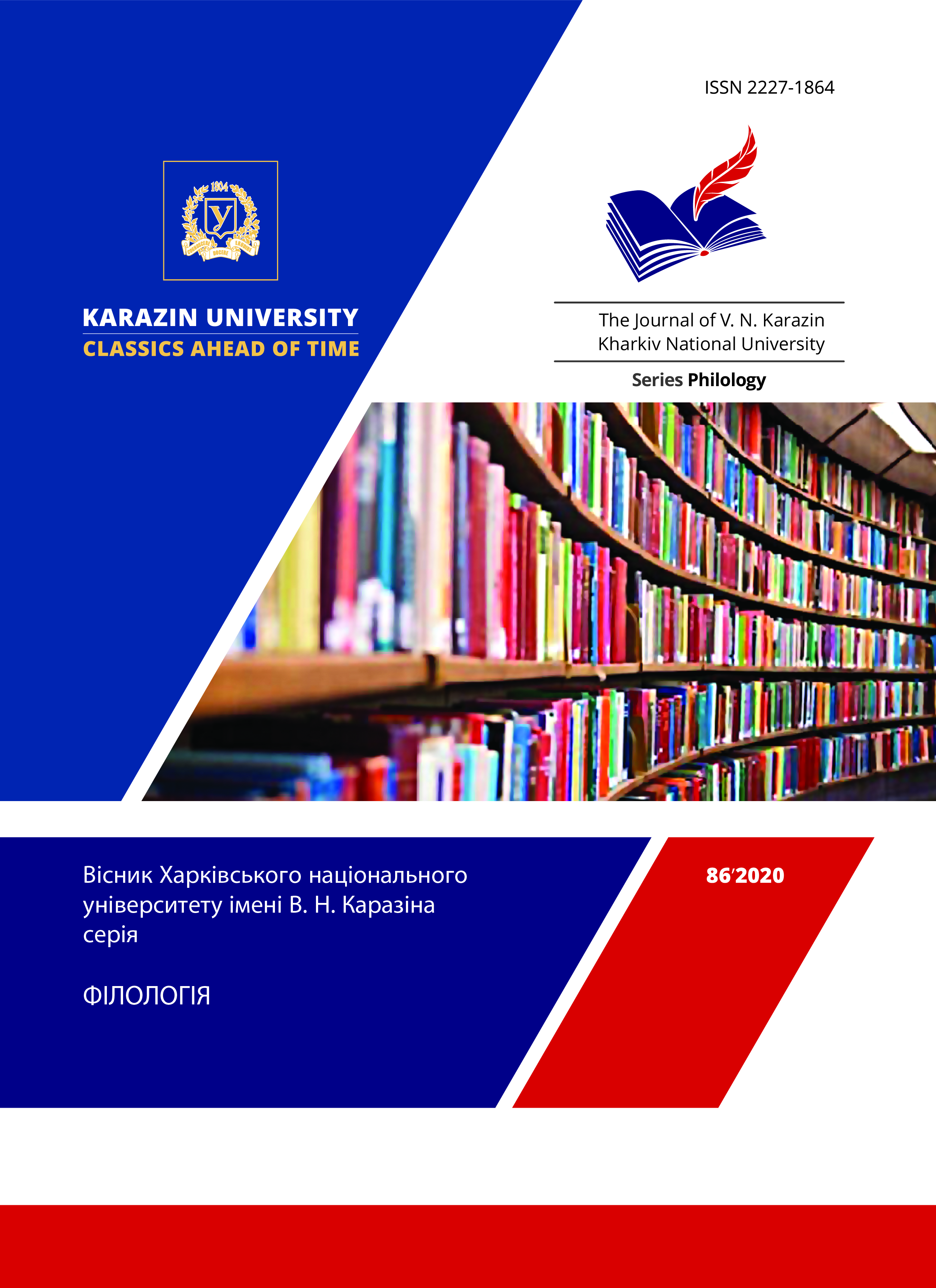Булгаковський код у романі В. Пелевіна «Чапаєв та Пустота»
Анотація
Актуальність дослідження озумовлена важливістю булгаковського інтертексту в романі В. Пелевіна. У статті показано, що практично поза зоною наукового інтересу опинився булгаковський код «Чапаєва та Пустоти». Між тим його аналіз має особливе значення для розуміння авторської концепції світу та людини в романі. Можна говорити про те, що свій роман Пелевін пише «поверх» «Майстра і Маргарити», створюючи, таким чином, палімпсест, оскільки схожість між цими творами проявляється майже на всіх структурних рівнях: рамкових елементів, композиції, проблематики, сюжету, системи персонажів і мотивів.
Дослідження булгаковського інтертексту дозволяє стверджувати, що Пелевін використовує роман Булгаков «Майстер і Маргарита» як стрижневий претекст, і булгаковський код, поряд з буддистським, є принципово важливим для інтерпретації «Чапаєва та Пустоти». Пелевін веде з класиком свого роду філософсько-релігійний діалог. Світогляд Булгакова будується на християнських цінностях, що найбільше проявилося в його «західному» романі. Аксіологія роману підпорядкована християнській ідеології, зокрема – її моральній складовій. Як відомо, в «Чапаєві та Пустоті» жорстко спародіювані певні аспекти православ'я. Однак суперечка з попередником відбувається не в аспекті деконструкції християнського міфу і пред'явленні більш актуального – буддистського. Автор «Чапаєва та Пустоти» сумнівається в спроможності будь-яких готових істин, тому історія Петра Пустоти – це не пошук вже створених духовних орієнтирів, а історія виявлення індивідуального шляху знаходження гармонії через відмову від колишніх морально-етичних програм, в числі яких виступає і булгаковський міф.
Роман «Чапаєв і Пустота», як і «Майстер і Маргарита», може бути віднесений до двуадресних текстів. Звертаючись до широких читацьких мас, Пелевін створює комфортну і впізнавану знакову систему, породжену маскультом. При цьому кожен елемент його роману передбачає іронічну суперечливість і багатозначність, що дозволяє автору поставити найважливіші філософські проблеми.
Завантаження
Посилання
Genis A. Fenomen Pelevina. URL: http://pelevin.nov.ru/stati/o-gen1/1.html (accessed: 5.05.2020)
Gurin S. Pelevin mezhdu buddizmom i hristianstvom. URL: http://pelevin.nov.ru/stati/o-gurin/1.html (accessed: 15.03.2019)
Zorina M. Motiv pustotyi v romane V. Pelevina «Chapaev i Pustota» // Rodnoe i vselenskoe: XI Mezhdunarodnaya nauchnaya konferentsiya. Ulyanovsk: Ulyanovskiy gosudarstvennyiy tehnicheskiy universitet, 2015. S. 216—221.
Kozhevnikova M. Buddizm v zerkale sovremennoy kulturyi: osvoenie ili prisvoenie? URL: http://www.pelevin.info/pelevin_165_0.html (accessed: 12.03.2019)
Marinchak V.A. Pilat i «pilatchina» v romane M. Bulgakova «Master i Margarita» // Nastoyatelnost skazannogo. Katastroficheskoe – sokrovennoe – sakralnoe v iskusstve slova. Kharkov: Prava lyudini, 2010. P. 270–324
Merezhinskaya A.Yu. Hudozhestvennaya paradigma perehodnoy kulturnoy epohi. Russkaya proza 80–90-h godov XX veka. K.: IPTs «Kievskiy universitet», 2001. 443 p.
Pelevin V.O. Chapaev i Pustota. M.: Eksmo, 2010. 416 p.
Reznikov K. Esche raz o Chapaeve i Pustote. URL: http://magazines.russ.ru/nlo/2004/67/ran14.html (accessed: 1.02.2017)
Seydashova A.B. Motiv pustotyi v romane V.O. Pelevina «Chapaev i pustota» // Vestnik Rossiyskogo universiteta druzhbyi narodov. Seriya: Literaturovedenie. Zhurnalistika. 2017. T. 22. № 3. S. 449-456.
Filippov L. Chto-to vrode lyubvi: kriticheskaya statya po Pelevinu. URL: http://pelevin.nov.ru/stati/o-filip/1.html (accessed: 11.03.2019)
Tsyiganov A. Mifologiya i roman Pelevina «Chapaev i Pustota». URL: http://pelevin.nov.ru/stati/o-myths/1.html (accessed: 11.03.2019)




